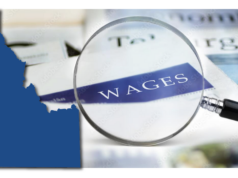Buying a home can be an overwhelming experience, and homeowner’s insurance can be an afterthought. But it shouldn’t be. Having proper homeowners coverage is critically important if something damages your home, such as a fire, flood, or tornado. If you understand the simple tips we describe below, you’ll be able to easily find an affordable and excellent homeowners policy such as this one from Allstate.com that provides the coverage you need.
Contact 3 Insurance Companies

Most mortgage companies require you to have homeowners insurance. You may also need to have flood insurance if you reside in a flood-prone area. But remember: You don’t need to buy insurance from any particular company.
That’s why you should get insurance quotes from at least three companies. Compare prices, coverage, and consumer reviews. Check that you are getting the proper types and amounts of coverage to protect your financial interests. It’s wise to shop for value but not the cheapest policy on the market.
Since you need to work with the insurance company if your home is damaged, be sure the insurer you select has top-notch reviews on Yelp and other review sites.
Compare Apples To Apples

Whether you compare policies yourself or have your broker do it, be sure that you are making an apples-to-apples comparison. This means you should be comparing policies that feature the same deductibles and coverage, so you know which is the best deal.
Basic homeowner’s coverage should include the cost of replacing the home, as well as what it would cost to replace your personal property.
Escrow Insurance Payments With Mortgage Payments

Most homeowners include monthly home insurance payments with their mortgage payments. The mortgage company will pay the insurance premium from an escrow account. Lenders like this arrangement because they know the premium is paid every month, and their financial interests are protected.
You usually need to pay for a year of insurance in advance at closing.
Pay For Enough Coverage

The most vital part of your policy is the level of coverage. Get as much as you need, but don’t pay for what you don’t need.
Below are the most common types of home insurance coverage:
- HO-2: Broad coverage that pays for 16 perils stated in the policy.
- HO-3: Broader coverage that pays for all perils, other than those excluded in your policy documents.
- HO-5: Policy that usually covers newer, more expensive homes. Covers all perils, except what is listed in the policy under exclusions.
- HO-6: Homeowners insurance for condominiums and co-ops.
- HO-7: For mobile homes.
- HO-8: For older houses, covers your property’s actual cash value.
If you live in an area prone to flooding or earthquakes, you’ll need special coverage as regular homeowners insurance doesn’t cover these items.
Understand Your Policy

Getting the right coverage isn’t enough. You also need to understand the coverage you’re buying, so get familiar with the following terms:
- Deductible: The amount you need to pay before your homeowner’s insurance pays. The higher your deductible, the lower your insurance premium.
- Liability coverage: What covers your medical or legal costs if a person is injured in or around your home.
- Personal property: Refers to the personal belongings in your homes, such as TVs, furniture, and clothes.
- Premium: What you pay for your homeowner’s policy. It is usually paid monthly or yearly.
- Replacement cost: Insurance that pays the entire cost of replacing the home or personal belongings, up to a certain amount.
- Actual cash value: Gives the homeowner the current cash value of the home or personal property.
- Riders: Policies added to cover specific things, such as antique furniture, artwork, or jewelry. You could also get riders for air conditioning, heating, and ventilation systems; these are part of the house and cost a lot to replace.
- Sub-limits: All home insurance policies have limits, but they’re also are sub-limits. For example, if you have a $500,000 insurance policy, the sub-limit on your personal property is usually $250,000.
Understand Coverage Gaps

The last thing you need when disaster strikes is to review your policy and discover your policy doesn’t cover the repair. So, make sure the covered perils are identical in all of the homeowner’s policies you’re considering. If a peril is not written in the contract, it’s probably not going to be covered.
Even if the policy states ‘all perils covered,’ you can bet it may not cover floods and earthquakes. Insurance experts warn that most regular homeowner’s policies don’t cover these disasters unless it’s included as a rider.
Regarding hurricane insurance, it’s wise to opt for a flat deductible and not a percentage deductible. For example, if your home is worth $250,000, you’re better off paying a deductible of $1,000 than paying 3% of the home’s value, which would be a hefty $2,500.
Most homeowner’s policies have limited coverage for guns and jewelry; the limits could be just $1,500. So if you want to insure that $15,000 wedding ring, you’ll need a rider on the policy.
What About Changing Policies To Save Money?

It’s smart to shop around for homeowner’s insurance just before your policy renews. But how likely is it that you’re going to get a lower premium if you switch? Is it always smart to change to get that lower price? Experts say not necessarily.
It’s wise to compare prices, but most experts recommend only changing carriers if you’re getting a significant price break. Insurance companies look at how long you were with your previous carrier when they consider discounting a policy. If you change carriers annually, you probably won’t score a discount.
Everyone needs to have homeowner’s insurance if they have a mortgage. Insurance isn’t the most thrilling subject for some of us, so it’s common to try to get the shopping over as soon as possible. But spending some time shopping can pay off, and you can save a bundle.
Once you know the above information, you have all you need to find the right homeowners policy for you!










